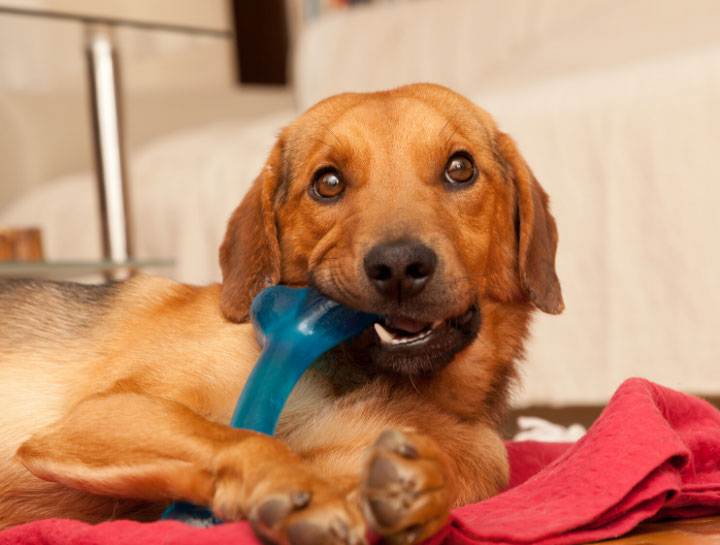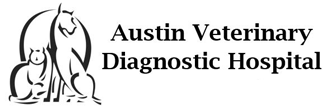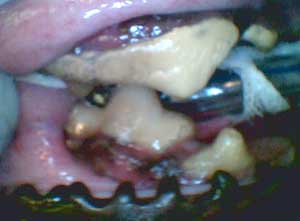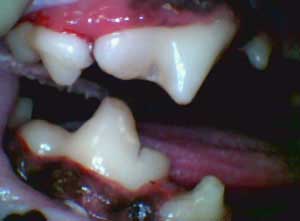Preventive Dental Care
Routine dental care matters.
A pet's dental health is just as important as their physical health, however, it often goes overlooked. The reality is that oral hygiene plays a huge part in ensuring your pet lives a long, healthy life.
Dental disease is a common but serious problem. Approximately 80% of pets will develop it by the time they’re three and, if left untreated, it will spread to the tooth socket and destroy bone. It also allows bacteria to travel from the mouth and through the body which can affect the heart, lungs, kidneys, and liver and cause chronic health issues.
The good news is that dental disease is entirely preventable and with regular preventive care, you can help your pet avoid the pitfalls associated with poor oral hygiene.
The Importance of Dental Health
Have you ever imagined a place where bacteria thrive in microscopic cesspools and hidden pockets causing erosion, pain, infection and decay? Probably not. What if this place exists in most households, possibly including yours?! Lift your pet’s lip to find out.
Dental disease is one of the most prevalent diseases affecting companion animals. Tartar buildup on teeth and under gums causes bacterial overgrowth and infection. This infection leads to decay of the ligaments that hold teeth in place, causing tooth loosening and abscess formation at the tooth roots. In severe cases, the bones of the jaw and skull can become decayed and compromised. Extreme cases of dental disease can actually contribute to a pet’s preventable death.
Other problems associated with dental disease include tooth fractures and retained baby teeth or improperly aligned teeth. Cats may have even more severe problems associated with dental disease, such as resorptive lesions or stomatitis.
Signs that your pet may be long overdue for that crucial dental exam may include:
- Bad breath (halitosis)
- Eating less
- Obvious difficulty eating
- Weight loss
- Irritability
Proper and complete dental cleanings must be done under anesthesia in order to scale under the gumline, probe for abscessed pockets, and extract teeth if necessary. Many owners are nervous about the idea of anesthesia for their pet. After your veterinarian has examined your pet and completed proper pre-anesthetic testing (such as bloodwork), the relative risk of anesthesia for the specific patient is better understood.
|
Dental Before
|
Dental After
|
Thousands of pets (yes, even senior pets!) safely undergo dental cleanings every year and are now healthier and happier.
Now you can fully understand the importance of including a thorough oral check with your annual wellness exam. Ask your veterinarian if your pet needs a dental cleaning. If your furry friend’s doctor recommends a dental, please do it for the longevity and benefits to your animal. It will make those sloppy kisses even better!
~ Sarah Kneupper, DVM
Austin Veterinary Diagnostic Hospital
Call us at (512) 288-1040 to schedule your pet’s oral health assessment or dental cleaning.



